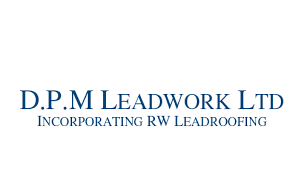Manufacturing
Everything you need to know about how we make your lead
Every single lead sheet, lead ingot or lead-lined board Midland Lead makes is subjected to rigorous quality checks throughout the entire process – from manufacture to despatch. That’s why we can say, with absolute confidence, that each and every one of our lead ingots, lead sheets or lead-lined boards is fit-for-purpose and made to an impeccable standard.
The right lead thickness for your requirements
The code of lead you require will vary on the intended application. The construction industry typically requires code 4 – with a smaller requirement for code 5 lead sheet. Requirements in the UK healthcare sector vary, from code 3 for dental/veterinary use, to codes 4/6 for general hospital use.
Five steps to perfect lead sheet and lead products
- High standards. Even before it gets to one of our 120 tonne melting kettles, we analyse the quality of every fresh consignment of recycled lead to ensure it meets our required standards. (We only ever use recycled lead, so you really are getting a very green product.)
- Proven methods. Rigorous temperature control and proven production processes throughout the lead casting process eliminates any variation in quality.
- External standards. We follow a quality plan laid out by the British Board of Agrément for our machine cast lead and British Standard for our rolled lead. For example, before the molten lead is pumped into our lead casting machine, it is quality tested in our onsite spectro-lab to ensure it meets our 99.95% purity rating.
- Internal quality control. We test for thickness and target-width many times – including immediately following manufacture, then again when the lead cools, and again when it is being cut to your required size.
- Production environment. Clear quality control, rigorous health and safety policies and an ISO-accredited working environment all play a big part in ensuring we make the highest quality lead products.
The only UK company to offer the complete lead range
Rolled, machine cast and sandcast lead – as well as lead-lined boards and lead ancillaries are all available from Midland Lead. We make the majority of it onsite here in the East Midlands.
Here are our average lead times for orders through to delivery in the UK:
- Machine cast lead: 2-3 days for standard codes 3-8. Or 5-7 days for codes 1 and 2 and for customised thicknesses.
- Rolled lead: 2-3 days for construction codes 3-8.
- Sandcast lead: Delivery by negotiation depending on your requirements, but typically, you should allow 10 days for a 5 tonne order.
To give you a better idea of how the process works, let’s take a look at two of the major production processes:
Making machine cast lead
It all starts with lead scrap (lead pipes, cables and other reclaimed lead). We make sure it meets our quality standards before loading it into our two 120 tonne melting kettles. The lead isn’t just melted; it is gradually refined, until it is very nearly 100% pure. (It actually needs a few additional trace elements to make the lead suitable for construction and other uses.)
Once the refined material is pumped into a bath, a water-cooled drum is immersed into the molten lead. As the lead solidifies on the cold surface, it is extruded in a continuous sheet and wound onto a spool – this can weigh anything up to 6 tonnes.
Cooled sufficiently, these huge spools are transferred to the cutting area. Here, the lead sheet is rewound and cut off in rolls to your specifications of width and length.
Machine cast lead offers one of the most economical and energy-efficient ways to make lead.
Making sandcast lead
Sandcast lead is made in smaller, bespoke batches to meet your precise requirements of thickness and volume.
The lead is made on a bed of sand with a meticulously smooth, even surface. Before the molten lead can be poured onto the bed, it has to reach just the right temperature – a degree or two under or over and the process just won’t work.
When it’s ready, the lead is poured down onto the sand bed and carefully smoothed out as it runs along the length of the bed. Our experts have to move quickly. The lead begins to harden almost as soon as it leaves the kettle.
What sort of lead do you need?
We can supply you with rolled lead, machine cast lead and sandcast lead as well as lead-lined boards and ancillary products. Check out our products in more detail, or give us a call on +44 (0) 1283 224 555 to find out more.



